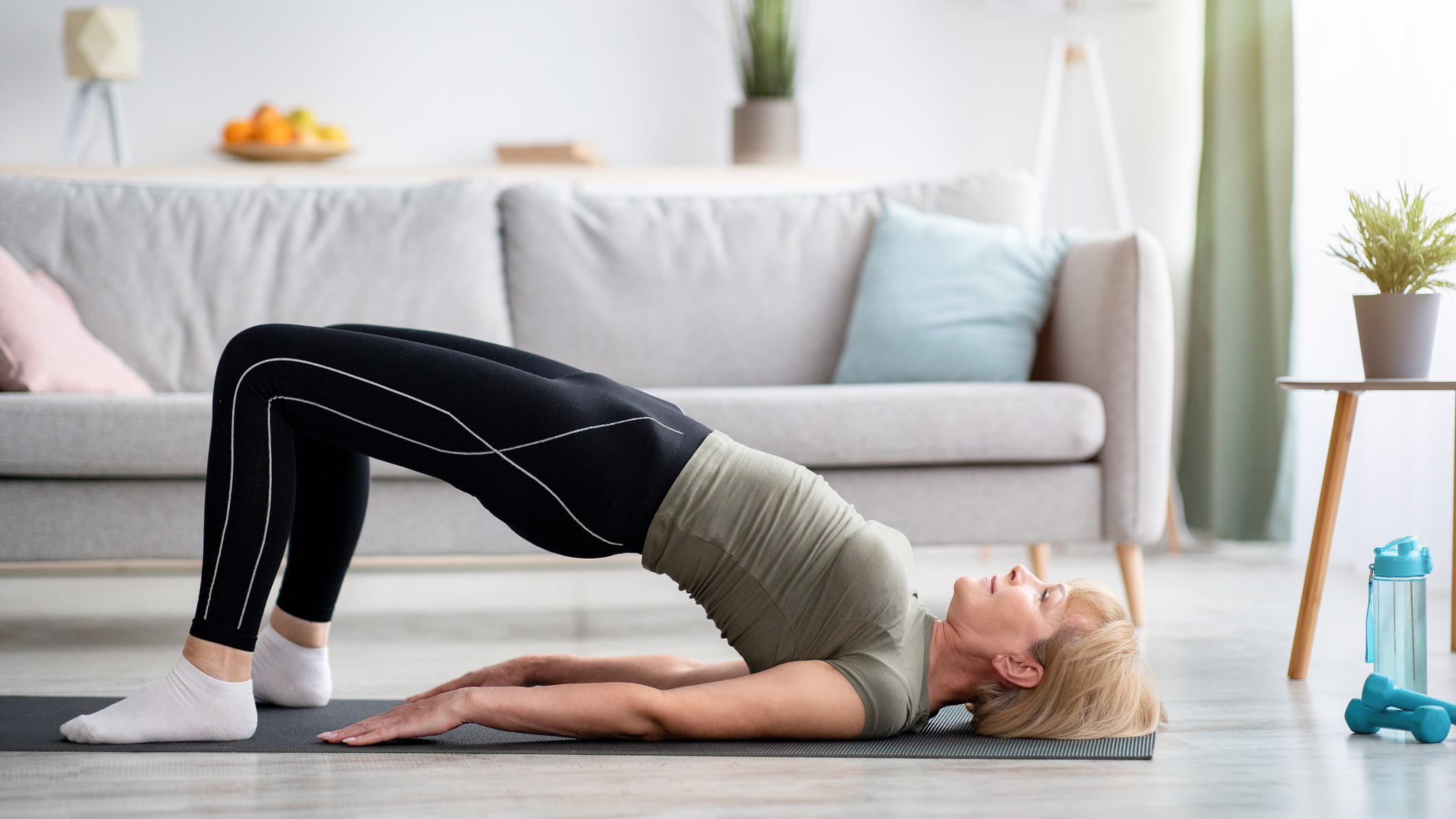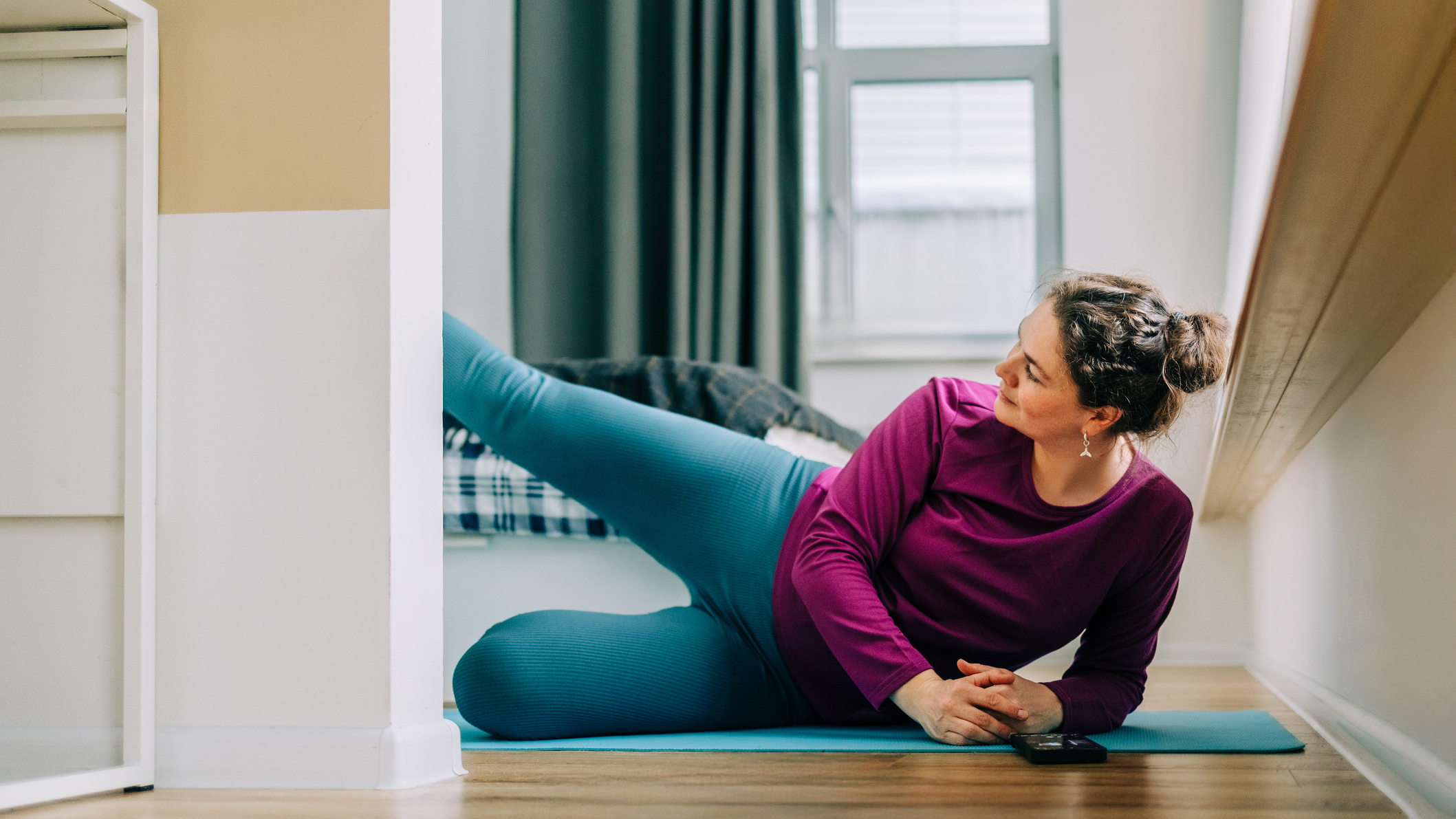
The go-to move to strengthen the pelvic floor is a Kegel, but it's not the only exercise you can do. When done correctly, a bridge pose can also encourage your pelvic floor muscles to contract.
This five minute session from Pilates teacher Katarina Trinkewizova Hezel will target your pelvic floor muscles with a single-leg bridge variation. You don't need any equipment to do it, but a yoga mat might help cushion your back
How to do the exercise
A post shared by KATARINA | Stretchilates (@stretchilates)
A photo posted by on
Watch the trainer's video above to learn how to do the move. Then complete 10 repetitions on each leg for three rounds.
To make sure you're targeting the correct muscles, engage your core and activate your pelvic floor by "sucking up" the muscles around your genitals and anus. It should feel like you're trying not to pass wind.
I tried this move for myself, and while I can’t vouch for the "snatched waist" claims in the video, I did also feel the exercise in my obliques, which are found along the side of the abdomen.
What is the pelvic floor?
The pelvic floor is the name given to the muscles and ligaments in the base of the pelvis that support your internal pelvic organs, which include the bowel, bladder, uterus, cervix, rectum, and vagina. These muscles and ligaments also control the release and contraction of these areas.
"The muscles of the pelvic floor span, almost like a hammock, from the tailbone to the pubic bone, and out to the sit bones," Hollie Grant, founder of The Bump Plan, explains.
Start your week with achievable workout ideas, health tips and wellbeing advice in your inbox.
What is pelvic floor dysfunction?
If you suffer from pelvic floor dysfunction, you might experience urine leakage, difficulty passing stool or a lack of sensation during sex.
Nicole Chapman, personal trainer and founder of Power Of Mum, explains that pelvic floor dysfunction can affect people as young as 12. "But it is more commonly seen in women who are pregnant or have given birth, perimenopausal or menopausal women or older women with age degenerative frailty," she says.
Pelvic floor exercises can help women of all ages prevent or manage symptoms of pelvic dysfunction. A 2019 Cochrane review found that two-thirds of women with urinary incontinence see improvements after pelvic floor training.
If you want more exercises to strengthen the muscles in this area, try these five pelvic floor exercises for women. Or have a go at this deep-core workout, which will also benefit the pelvic floor.

Lou Mudge is a Health Writer at Future Plc, working across Fit&Well and Coach. She previously worked for Live Science, and regularly writes for Space.com and Pet's Radar. Based in Bath, UK, she has a passion for food, nutrition and health and is eager to demystify diet culture in order to make health and fitness accessible to everybody.
Multiple diagnoses in her early twenties sparked an interest in the gut-brain axis and the impact that diet and exercise can have on both physical and mental health. She was put on the FODMAP elimination diet during this time and learned to adapt recipes to fit these parameters, while retaining core flavors and textures, and now enjoys cooking for gut health.
-
 Start your day with this Pilates-inspired core workout before anyone else wakes up—it only takes 10 minutes
Start your day with this Pilates-inspired core workout before anyone else wakes up—it only takes 10 minutesThis short workout is ideal for beginners
-
 Prolonged sitting decreases brain blood flow and function, but just two minutes of this light form of exercise can offset the damage
Prolonged sitting decreases brain blood flow and function, but just two minutes of this light form of exercise can offset the damageTaking shorter, more frequent breaks is the best remedy
